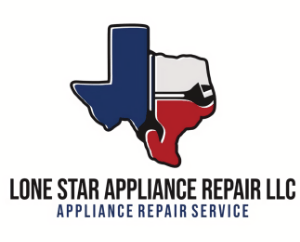Preparing Your Appliances for a Stress-Free Holiday Season
A refrigerator is one of the most important appliances in a home, and it can be a significant inconvenience when it breaks down. There are several common causes of refrigerator problems, and understanding these can help you troubleshoot and fix the issue.
1. Faulty Motors
A few different things can cause a refrigerator motor to fail. One is simply age. Over time, the motor can wear out and stop working properly. Another is dirt and debris build-up, preventing the motor from running smoothly.
Sometimes, a refrigerator motor can also be damaged by a power surge. If there's a sudden spike in electricity, it can fry the motor, causing it to stop working.
If your refrigerator has stopped working, it's important to figure out what's causing the problem. If it's a faulty motor, you'll need to replace it.
2. Lack of Coolant
If your refrigerator isn't cooling properly, one of the first things you should check is the coolant level. The coolant is what keeps your fridge cold, so if it's low, your fridge will struggle to maintain a proper temperature.
There are a few possible reasons for low coolant levels.
First, if you have a leak in your fridge's coolant system, the coolant will slowly escape and need to be replenished. Second, the coolant may have degraded and lost some of its effectiveness if your fridge is older. Finally, if your fridge has been turned off for an extended period, the coolant may have settled and needs to be stirred up.
Adding coolant to your fridge is a relatively simple process. You can buy coolant at most hardware stores, and it usually comes in a can with a nozzle that fits into the sight glass. Open the can and squeeze the coolant into the sight glass until the level rises above the line.
Once you've added coolant, turn your fridge back on and let it run for a few hours to ensure the coolant is circulated correctly.
3. Messy Condenser Coils
A dirty condenser coil is one of the most common causes of refrigerator problems. The condenser coils are responsible for dissipating heat from the fridge; if they are dirty, they will not be able to do their job properly. This can cause the fridge to overheat and break down.
To clean the condenser coils, simply remove them and wipe them down with a soft cloth.
4. Faulty Compressors
If your refrigerator is making strange noises, or if it's not cooling properly, there's a chance that the compressor is to blame. The compressor is the heart of the fridge, and if it breaks down, the refrigerator will stop working.
A few different things can cause a compressor to break down. One of the most common causes is a lack of lubrication. The compressor relies on oil to keep it running smoothly, and if the oil level gets too low, the compressor can overheat and break down.
Another common cause of compressor failure is a build-up of dirt and dust. This can happen if the fridge isn't cleaned regularly or if there's a lot of dust in the air. Over time, the dirt and dust can clog up the compressor, causing it to overheat and break down.
If you suspect your compressor is failing, you should call for refrigerator repair as soon as possible. A failed compressor is not something you can fix yourself, and it will only worsen over time. Once the compressor fails, the best option is to replace the entire refrigerator.
Final Thoughts
If your refrigerator is not working correctly, it is essential first to check the most common causes of problems. By doing this, you can avoid costly repairs or replacements.
For
appliance repair in Montgomery, contact us at Lone Star Appliance Repair. With our expert team, you can keep your home running smoothly. Give us a call today for more information.



